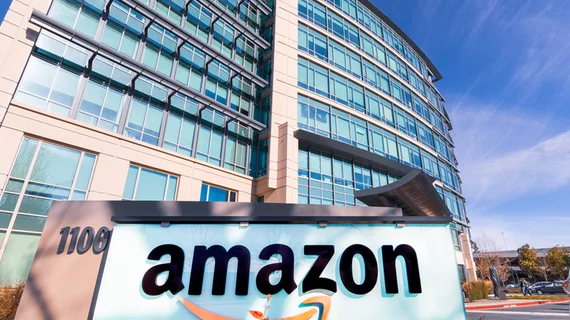Amazon Care coming to new markets
E-commerce giant Amazon is bringing its expanding healthcare services to 20 U.S. cities.
Amazon first introduced its healthcare clinics to its employees earlier this year after providing them with virtual care services. Its virtual care app, Amazon Care, lets people connect with physicians online through messages and video, with an option for an in-person visit from a nurse for exams, tests and vaccines. The online retailer offered up its medical services to others outside the company this summer.
Now, Amazon’s medical offering will expand beyond its current footprint of Washington state, Washington, DC, and Baltimore. The news was first reported by Insider. The telehealth and in-person services will soon be available in Philadelphia, Chicago, Boston and Dallas, people familiar with the matter told Insider.
In 2022, Amazon will add another 16 cities in its medical care reach. The cities being targeted for next year include: Atlanta; Denver; Detroit; Houston; Indianapolis; Kansas City, Missouri; Los Angeles; Miami; Minneapolis; Nashville, Tennessee; New York; Phoenix; Pittsburgh; San Francisco; San Jose, California; and St. Louis. However, the locations could change.
In total, about 40,000 people are signed up for Amazon Care, with most being Amazon employees, according to Insider.
The expansion of Amazon Care comes after the company experienced a healthcare flop in Haven, a joint venture with Berkshire Hathaway and JPMorgan Chase. Haven aimed to improve healthcare coverage for all employees of the three companies but failed to meaningfully affect the healthcare insurance market.

